
'Summer of '85' Film Review: François Ozon Explores His Favorite Things - Sex, Death, Dark Humor
TIFF 2020: Forget the comparisons to “Call Me by Your Name” — this coming-of-age tale is as unpredictable as it is hazily nostalgic
by Alonso DuraldeSet in the year when writer-director François Ozon turned 18, “Summer of ’85” depicts gay adolescent romance in a sun-dappled, seaside French town. But to compare it to “Call Me by Your Name” makes about as much sense as pairing “Hiroshima, Mon Amour” with the original “Godzilla” just because they’re both about the aftermath of the atomic bomb.
Ozon, adapting the British YA novel “Dance on My Grave” by Aidan Chambers, has a rather different story to tell, and it’s one that fits with many of the director’s favorite themes, particularly the intersection of sexuality and mortality, explored in a manner that occasionally leads to pitch-black humor. It’s even peppered with visual and thematic references to earlier Ozon films, from his international hit “Swimming Pool” to his breakthrough short “A Summer Dress.”
It’s a tale told in flashback, as we open on Alexis (Félix Lefebvre, Netflix’s “The Chalet”) being hauled in for questions about the death of David (Benjamin Voisin). And as Alexis writes down the story for the authorities, he tells it to us as well: The two met when Alexis’ sailboat capsized and David rescued him. David, who’s a little older, is immediately solicitous, bringing him home for a hot bath and a meal prepared by David’s inappropriately gregarious mother (Valeria Bruni Tedeschi, “Let the Sunshine In”).
They become fast friends, and then lovers. (In the narration, Alexis tells the authorities that his sex with David is none of their business, and so a door closes, not that we don’t get plenty of indications of the passion that transpires between them.) Just as Alexis is utterly besotted, though, David shows himself to be a serial flirt, seducing British au pair Kate (Philippine Velge) right in front of Alexis. The two boys later argue, with Alexis throwing a heavy object and breaking a mirror behind David before he storms out. David chases after him on his motorcycle and gets into an accident.
It’s at this point that the story gets complicated, with David’s mother, still reeling from having recently become a widow, blaming Alexis for the death of her son. And as Alexis tries to process his grief — and to fulfill a promise he’d made to David — David’s mother grows increasingly infuriated.
“Summer of ’85” gets its 1985-ness right, from bookending the action with The Cure’s “In Between Days” to the jeans and the typewriters. And nobody since Eric Rohmer gets the joys and the agony of young love under the French summer sun as well as Ozon does, time and again; cinematographer Hichame Alaouie working with Ozon for the first time, captures the director’s sense both of bright days that seem to stretch on to eternity and intimate spaces that become a character’s whole world.
It’s no easy task to nail Ozon’s various tones, but Lefebvre draws us into his character’s complicated journey, whether it’s the exhilaration of first love or the increasingly extreme lengths to which Alexis will go to process David’s death. The farcical nature of some of Alexis’ choices become all the funnier because of Lefebvre’s total deadpan about them.
He and Voisin generate palpable chemistry, and it’s interesting to see these two relative newcomers play off of modern legends like Bruni Tedeschi and Ozon regular Melvil Poupaud, unrecognizably nerdy as a literature professor who counsels both young men.
For as prolific a filmmaker as Ozon continues to be, his occasional misses are far outweighed by his offbeat and insightful forays, particularly in the realm of sexuality — the best parts and the crazy-making parts. For audiences equally interested in his insights about loss and about love, there’s plenty to ponder in “Summer of ’85.”
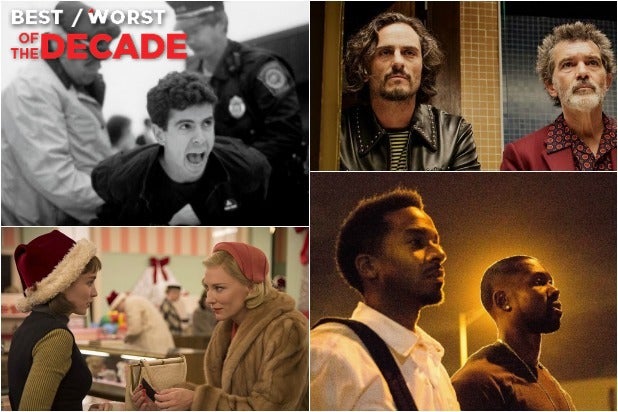

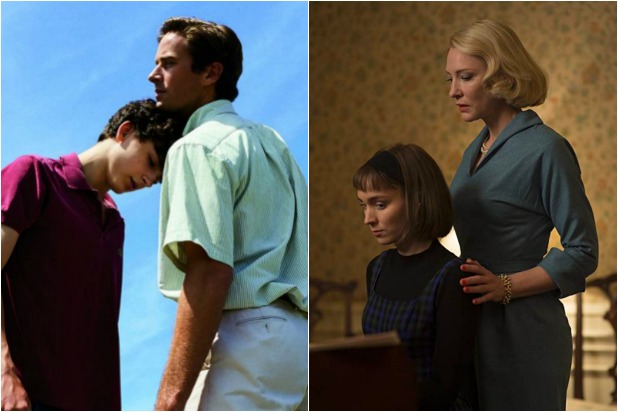
One was set in the relatively permissive 1980s and the other in the restrictive 1950s, but both films were gorgeous portraits of aching longing and rapturous passion among the wealthy and artistic. These were lush dramas that scratched an old-movie itch while taking a very contemporary look at same-sex relationships.Sony/The Weinstein Company
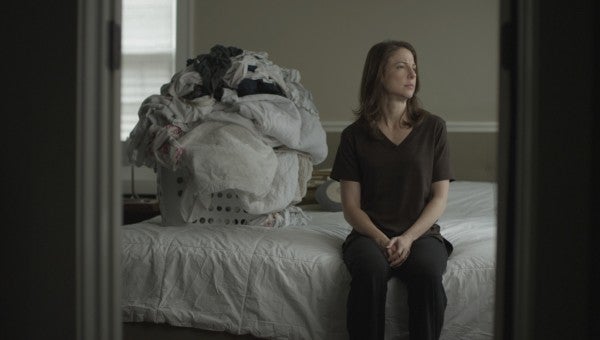
This unpredictable tale of a lesbian housewife shaking off the suburbs for sophisticated sex work had the erotic moxie of “Belle de Jour” and the knowing, arch qualities of “The Stepford Wives,” but it also represented the arrival of an important new voice -- writer-director Stacie Passon, making one of the decade’s most exciting debuts.RADiUS-TWC
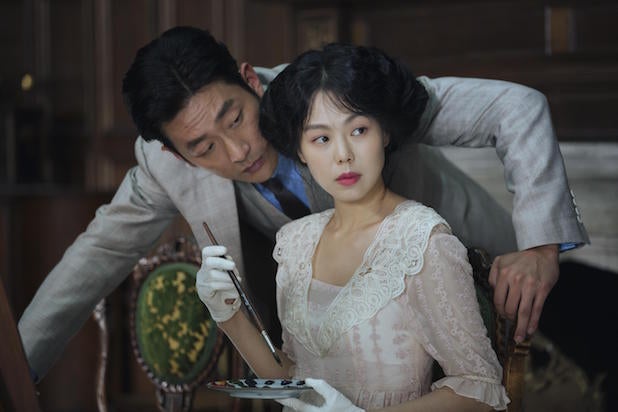
Park Chan-wook transferred Sarah Waters’ novel “Fingersmith” from Victorian England to Japanese-occupied Korea, but the psychological gamesmanship and breathless lesbian eroticism remained intact. Boasting gorgeous production values and a script where characters are constantly gaining and losing the upper hand, this was a riveting thriller that took queer relationships as a given, even in what we think of as the buttoned-down olden times.Amazon Studios

David France’s incredibly vital piece of activist cinema documented the rise of ACT UP in New York City in the 1980s, and how the members of that group fought the system -- before, essentially, taking it over themselves -- as the U.S. government and pharmaceutical industry turned its back on people with HIV and AIDS. It’s one of the great “yes, you can fight city hall” documentaries ever made.IFC

The subtle ways in which children come to understand -- and are taught to be afraid of -- their true selves, and the obstacles for adults seeking to overcome a lifetime of negative messaging are just some of the threads that weave their way through this gorgeous tapestry of a life, as portrayed brilliantly by three actors and captured by writer Tarell Alvin McCraney and director Barry Jenkins.A24
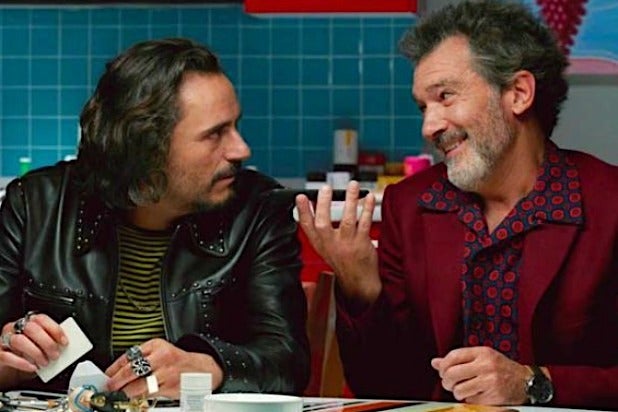
Legendary filmmaker Pedro Almodóvar offered some of his most tenderly romantic moments late in this autobiographical film, as director Salvador (Antonio Banderas) has an unexpected reunion, decades later, with his onetime lover. In just a few scenes, the two convey the depth and breadth of a relationship, from beginning to inevitable end, and it helps provide the full picture of Salvador, an artist whose past provides the possibility of unlocking his creative block.Sony

What starts out as a dark comedy about a gay California teenager forced to attend a family reunion in Nebraska unfurls into an unsettling thriller about family secrets and unresolved longings. Writer-director Matt Sobel subtly but inexorably tightens the vise, and it’s not until the closing credits roll that you allow yourself to exhale fully again.Netflix
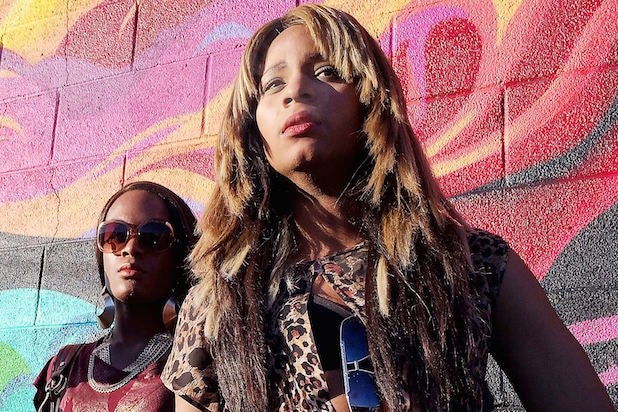
A Christmas Eve in the lives of two trans sex workers (played memorably by Mya Taylor and Kitana Kiki Rodriguez) provides a glimpse into both the grind of their day-to-day existence and their hopes and dreams. The leads consulted on the script, and the results are both quotidian and poetic.Magnolia Pictures

Writer-director Andrew Haigh (“45 Years”) starts with a simple premise -- two guys meet and hit it off, just as one of them is about to leave the country -- and turns it into a riveting two-hander, with Tom Cullen and Chris New capturing those moments of connection and curiosity and chemistry that mark the beginning of every new relationship, even as we know this one will end before it can even really start.Sundance Selects
“Pain and Glory,” “Carol” and “How to Survive a Plague” rank among the highlights of the decade
View In Gallery